My father, Bruce R. Brown, spent the summer of 1936 riding a bicycle around Scotland, England, and Wales. He went with a friend from high school and college named John G. Brackett. You will hear more about him later.
They had both just finished their freshman year at Harvard College. How the trip came to be, what they carried, how they found the bikes to rent, how much the whole thing cost—all this is unknown to me and lost to time.
My father kept a journal and wrote in it many days. Consequently, it’s possible to chart the route he and his friend took with a fair amount of certainty. The Scotland part of their trip is in blue, below. It was 352 miles, all on bike except for two short hikes. The route Mark Beckwith and I will take (in red) crosses their path twice.
My father grew up in Framingham, Massachusetts, the only child of older parents. His father, Charles Albert ”Bertie” Brown, was born in 1863 and had had an entire life before he married my grandmother.
My father and his friend took a steamship from Boston to Britain. Its name and where it landed are unrecorded in the journal. They were much taken with two young women about their age, whom they spent deck-time with.
They also met a Jewish family heading to the People’s Olympics, in Barcelona—an event I’d never heard of. It was a protest against, and alternative to, the Hitler-hosted Olympics to be held later in the summer in Berlin. Here’s a bit about it.
Barcelona had been the runner-up to Berlin’s bid for the 1936 games. Spain’s new Republican government said it would boycott those games. It was joined by several other delegations (notably the Soviet Union, but not the United States) as well as teams of exiled Jews. About 6,000 athletes planned to attend.
The event was cancelled two days before the opening when the so-called Nationalists began a revolt against the popular government. It’s said that 200 of the athletes stayed and fought in the Spanish Civil War.
That’s it for the voyage out.
Somehow they got to Glasgow, where they rented bikes. Here’s my father on his. It seems a bit small. There are paniers over the rear wheel, and he may have a small knapsack on his back.
Here’s John Brackett on his.
Early in the ride they spent a night in Spean Bridge. We will too. They spent a night in Newtonmore, which I walked through on my first crossing, in 2014. The Challenge coordinators Ali Ogden and Sue Oxley run a hostel there; it’s the beating heart of The Great Outdoors Challenge. They got as far north as Inverness–Macbeth country–which I passed through on my third Challenge on a route along the Moray Coast, where the first rehearsals for D-day were run.
The photographs that exist are unrevealing. Most are distant views of hills and lochs. There are several of castles and old buildings. Only a few have people in them. Here’s one of a sheep-shearing session they passed.
This is a man wheeling a cart that appears to have milk cans on it. It also looks like he’s wearing wooden shoes, which I don’t associate with Scotland.
They saw a lot of rain. We may also. You lose money betting against rain in Scotland (although my previous visits were blessed with lots of sunny, beautiful days, too).
Despite the rain, cold, and uncomfortable foul-weather gear (“those damn rubber nightgowns”), my father loved Scotland.
A. favorite place was Kenmore, where he and John spent several nights, one at a hotel where Robert Burns wrote a poem, in pencil, on the wall above a fireplace. It was visible then, as it is now. During the days, they explored a nearby castle and hiked up Ben Lawers, the highest mountain in the southern Highlands, and the 11th highest in the British Isles.
One night, my father wrote in his journal: “This evening I sat on the old bridge leading over the River Tay and drank in an everlasting silence, Ben Lawers in the distance and the Loch calm . . . If one wanted a more absolute sanctified place I don’t know where he’d find it. If I marry I’d like to spend my honeymoon in this country.”
He did marry, in 1943, but by then a honeymoon in Scotland was out of the question. He and my mother, Sally Mosser, spent theirs in Sea Island, Georgia.
He had another wish that summer.
“If I ever saw God-made land that was it,” he wrote rapturously about a day spent in Glen Coe. “Down through sloughs cut in the rocks the road wound. The Three Sisters sat on our left–huge rock-armoured hills with here and there a landslide showing like a cut. A stream ran a race with us on the left. On our right the Three Brothers guarded . . . with clouds shutting off their summit from view.
“Such a ride down I never expect to have again. No houses, nothing but heather, rain, mist, clouds . . . Down we flew into Glen Coe and on past slate quarries on the ever narrow road and finally here to the Ballachulish Hotel at 11 o’clock. 54 miles, most of it in the afternoon and evening. I hope my children see this country–it makes one small but exultant.”
That one did come true.
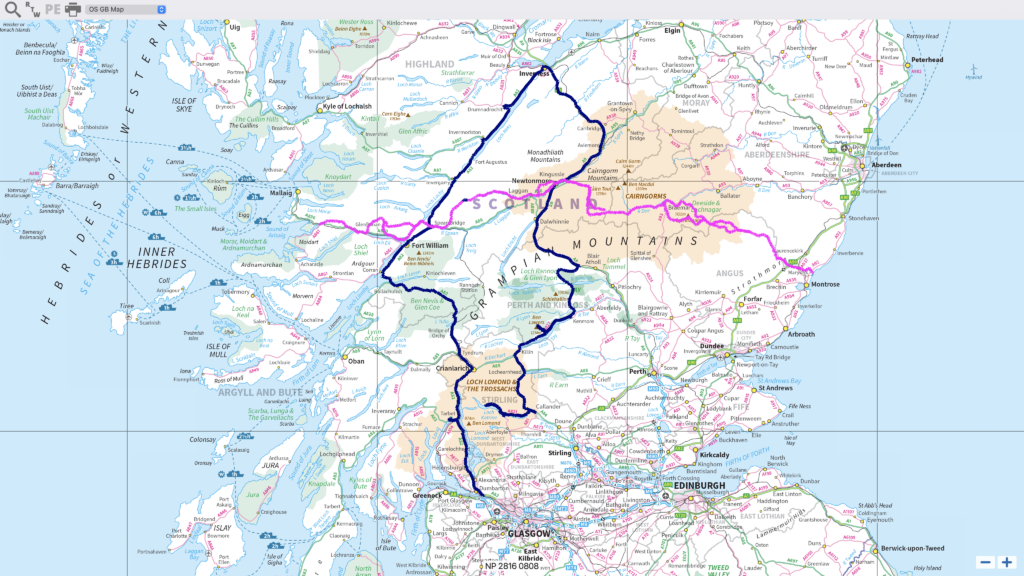
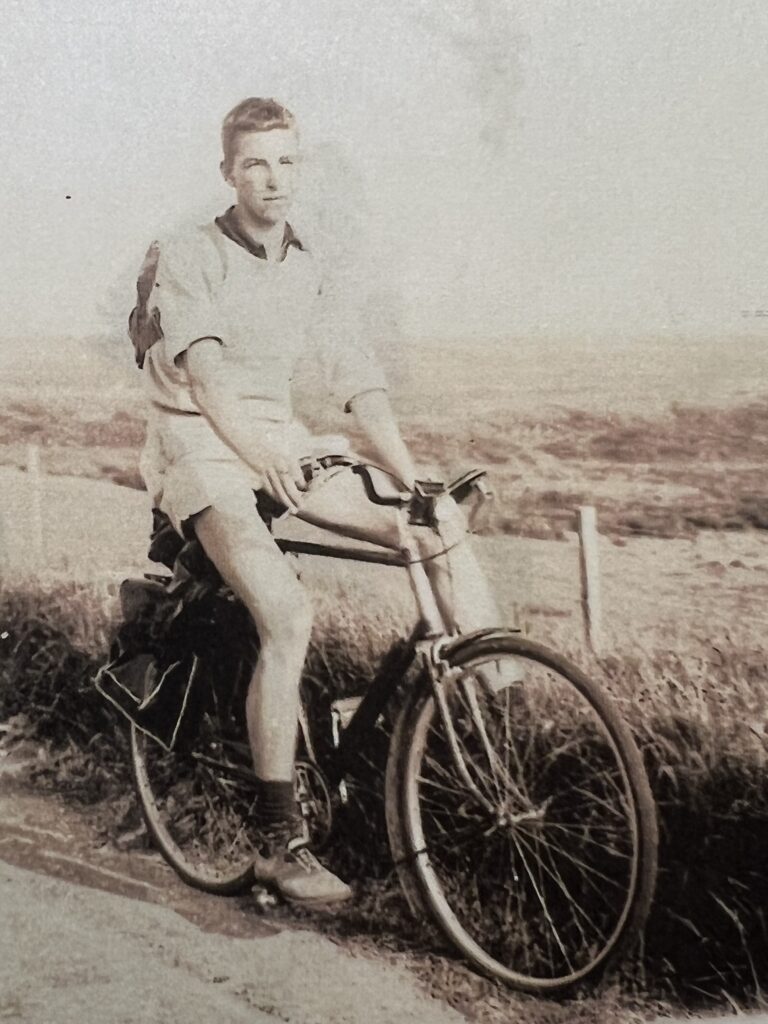
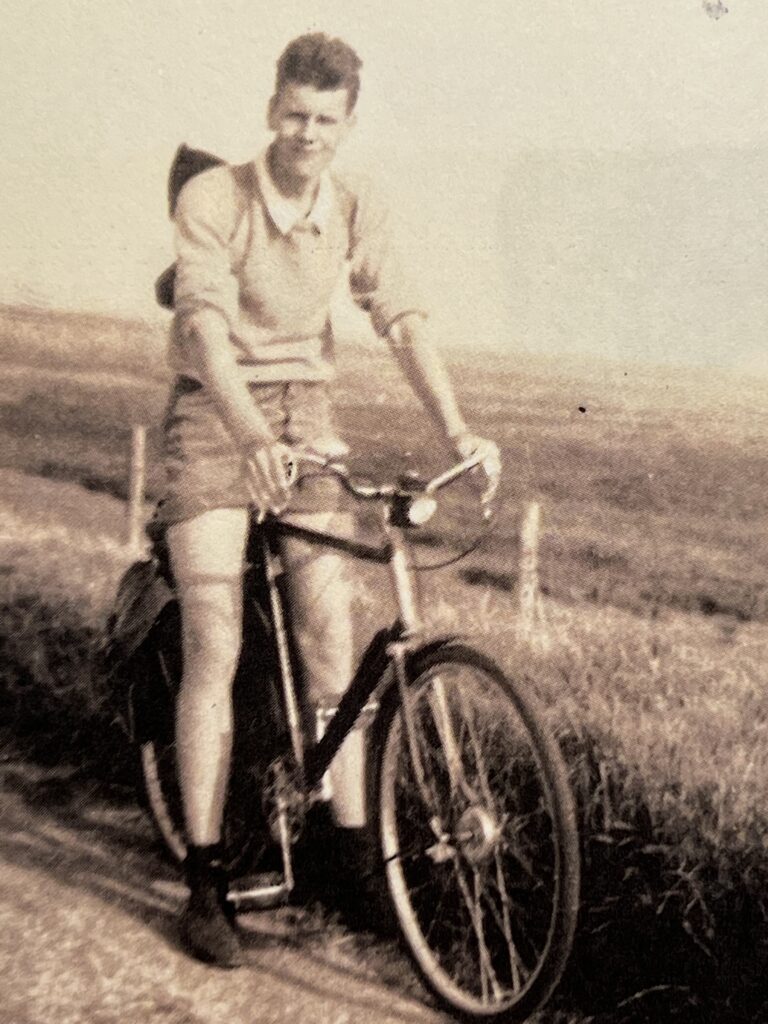
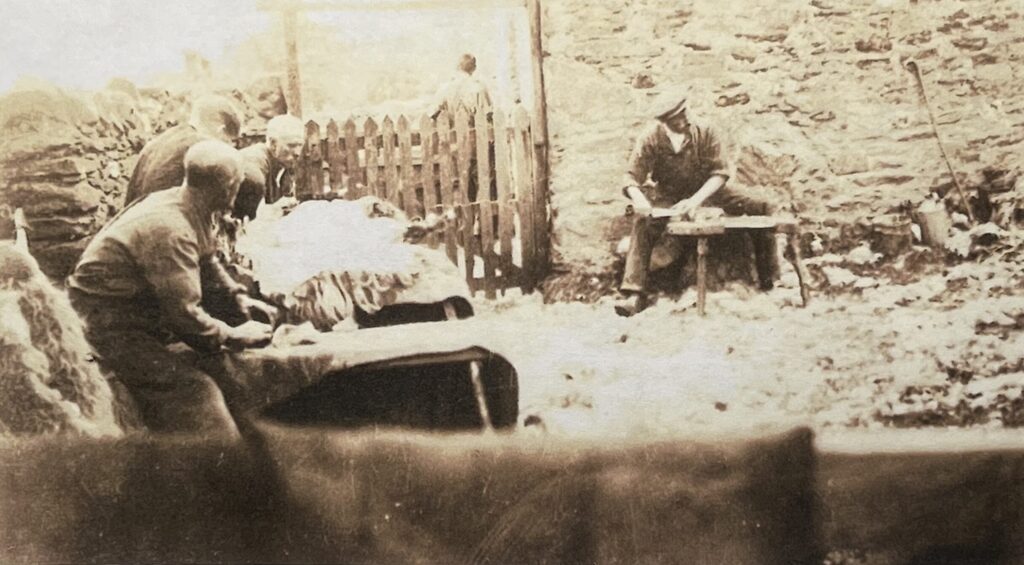
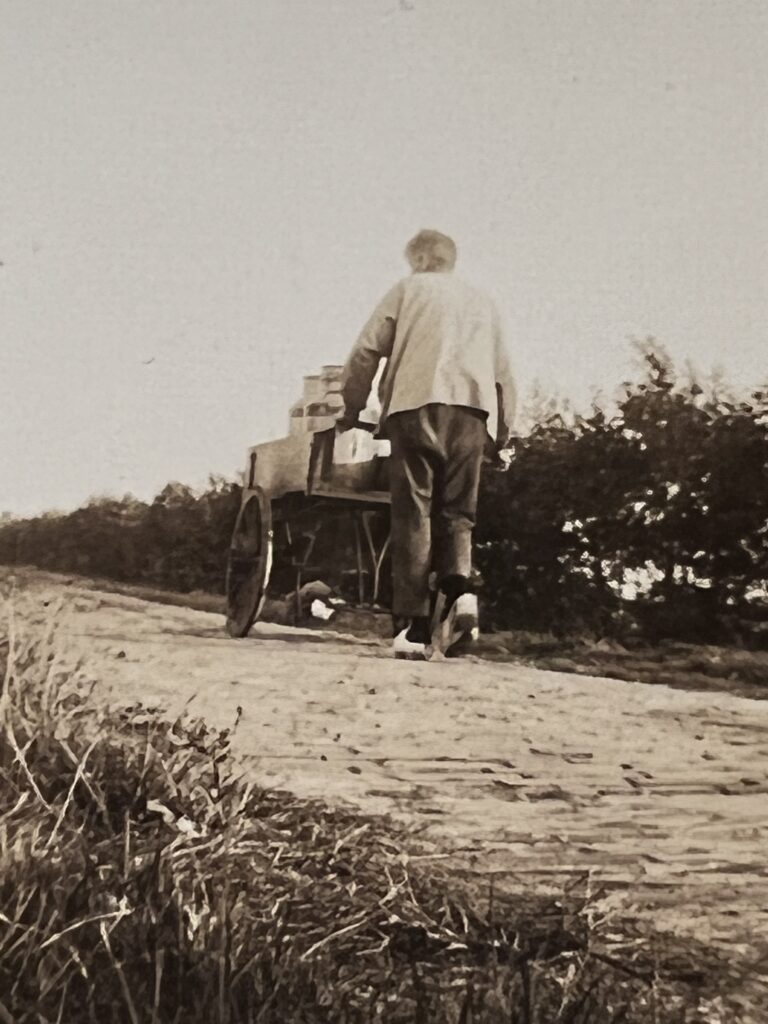
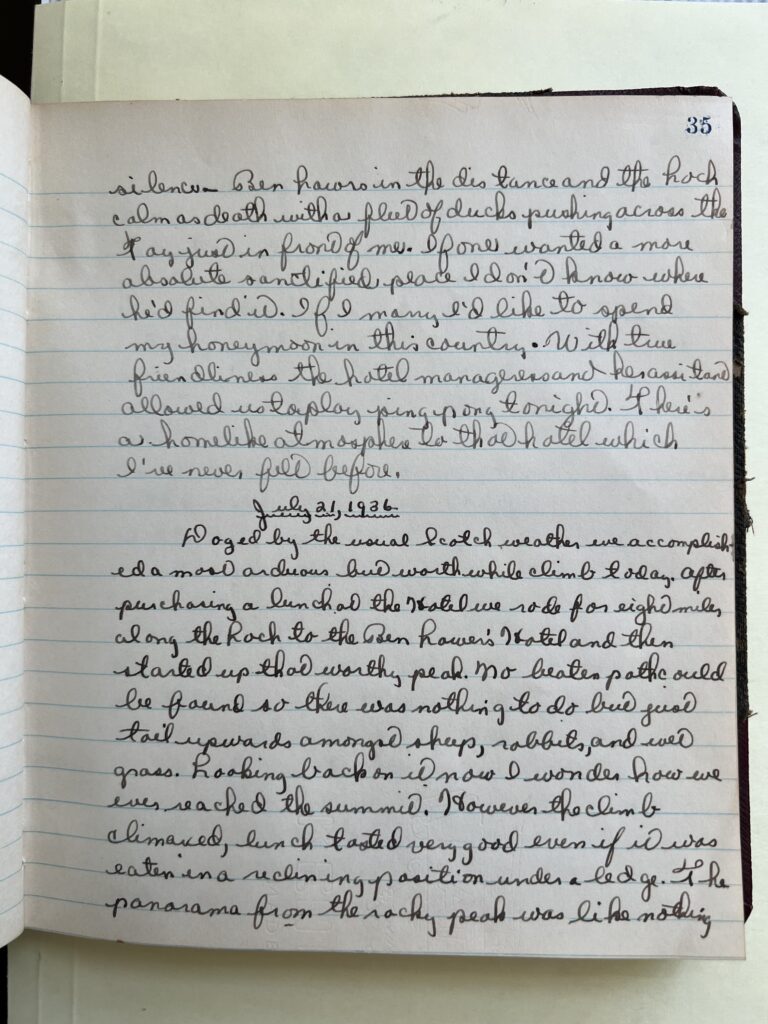
Your father had wonderful powers of observation—and wrote beautifully